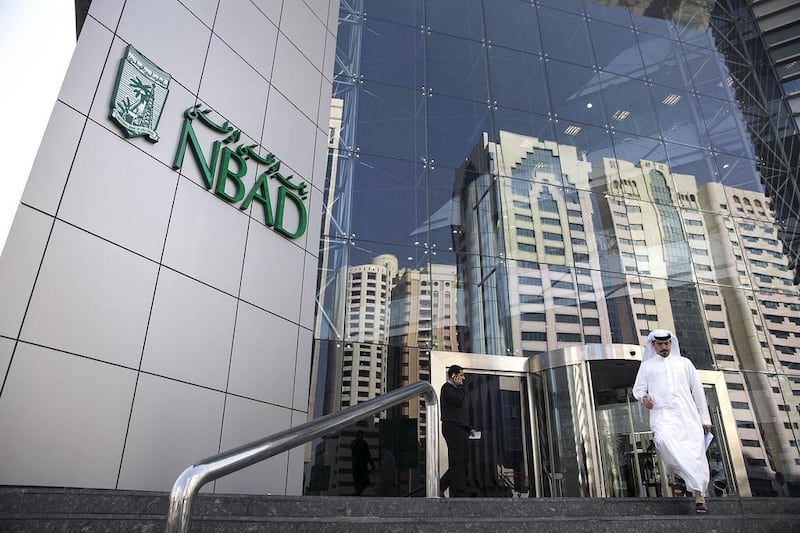UAE banks didn’t have the best of years in 2016 amid an oil-inspired economic slowdown but a successful completion of the merger of National Bank of Abu Dhabi and First Gulf Bank, the country’s biggest lenders, in the first quarter of next year will be a watershed moment.
For years high oil prices made the crowded sector, with more than 50 banks, viable as the country was flush with cash but a reversal in the direction of the price of oil in summer 2014 has put a dent in the status quo. The merger of the two institutions, one which is strong in corporate lending and the other in servicing individuals, is expected to come with a host of cost benefits and may set a trend for other lenders to follow.
Investors have by and large hailed the combination, especially as NBAD is considered one of the safest banks in the world, and its high credit ratings will allow it to borrow money cheaply on behalf of the new entity, which will have assets of US$178 billion, making it one of the largest in the Middle East and North Africa.
“We are positive on the merger because it will definitely lead to revenue and cost synergies,” said Sachin Mohindra, a portfolio manager at Invest AD, an Abu Dhabi-based asset manager.
“Both the franchises bring in some specific value. It will improve access to liquidity. The cost of funds for NBAD is fairly low so that will benefit the combined entity. Secondly, FGB brings in a very strong franchise in terms of the retail-banking network.”
The merger was approved by shareholders at general assembly meetings this month. The combination has also been approved by the Central Bank of the UAE but requires further approval from international regulators and the Securities and Commodities Authority. These are expected towards the end of the first quarter next year, the banks said.
Even though NBAD, the biggest bank by assets in the UAE, has made headway in building its consumer banking business, it will get a boost from joining forces with FGB, which has more loans to individuals on its books.
FGB’s retail book is about 40 per cent of its total loans, while NBAD’s consumer lending portfolio makes up just 17 per cent of its outstanding loans.
The move is expected to produce cost savings of about Dh500 million a year from 2019, according to research by the Egyptian investment bank EFG Hermes.
“These savings would primarily stem from the closure of overlapping branches and elimination of duplicate administrative costs,” said Shabbir Malik, an analyst at EFG Hermes.
Saving money has been a key concern for lenders over the past two years, as they have been hit by dwindling deposits as governments scrambled to find cash to plug budget deficits.
Banks will face other challenges in the coming years, including increased costs for having to keep higher reserves and a fixed percentage of provisions for all debt – costs that will most likely be passed on to customers.
Among the hardest hit have been small and medium-sized businesses, which are always in need of loans and have had a hard time getting them of late, leading to the folding of many such enterprises.
A credit sentiment report by the Central Bank in October shows that in the third quarter banks were less willing to lend.
Abdul Aziz Al Ghurair, the head of the UAE Banks Federation, said the same month that banking sector profits may fall between 10 and 20 per cent this year versus last year, as a slowing economy takes its toll on loan growth.
Many banks have already had a drop in profitability but the bigger banks have held their own in recent quarters. NBAD and FGB revealed in third-quarter earnings that their core business of lending remained steady despite the slowdown in economic growth gripping the country.
While FGB reported a 31 per cent gain in profit for the quarter on the back of strong revenue from noncore businesses, NBAD said its profit was unchanged as a gain in fees and commissions was outweighed by a slight drop in income from loans.
There has been speculation of further consolidation in the sector. The Central Bank governor, Mubarak Al Mansouri, declined to comment directly when asked last month if this was likely but said that measures to help smaller banks would be welcome whatever form they take.
“I am for strengthening the banking sector, so I am with introducing measures to help smaller banks improve their financial positions, their ratios,” he said. “I am with that. Whether it is through a merger or not, that is a business decision.”
mkassem@thenational.ae
Follow The National's Business section on Twitter





